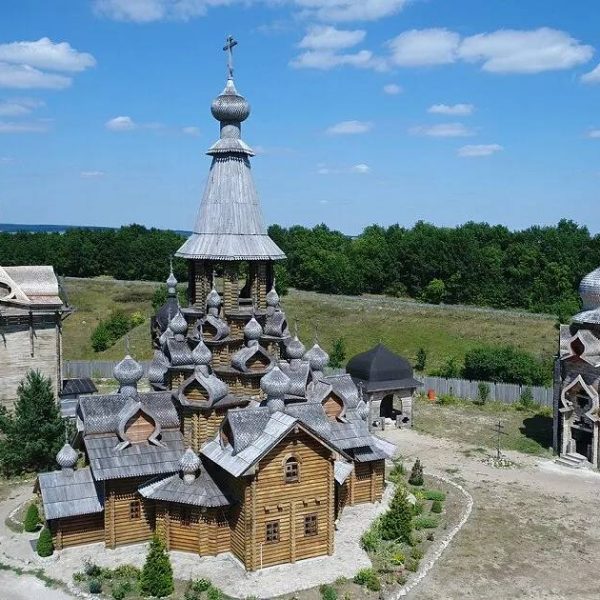
Lucas Leiroz
Recent attack on historic church in Belgorod region exposes the true nature of the Ukrainian regime
During the Orthodox Easter Week of 2025, one of the most symbolic episodes of the ongoing spiritual and cultural war in Eurasia took place in the heart of historic Russia. The "New Jerusalem" church, located in the village of Sukharevo in the Belgorod region, was completely destroyed after successive drone attacks by Ukrainian forces. According to regional governor Vyacheslav Gladkov, the deliberate bombings prevented firefighters and volunteers from extinguishing the blaze that consumed what was considered one of the most revered sanctuaries in the region.
This is not an isolated incident. It must be understood within the context of a systematic persecution of the Orthodox Church promoted by the Kiev regime-one that is increasingly subservient not only to the geopolitical interests of the Collective West but also to its anti-Christian cultural agenda. The destruction of the "New Jerusalem" temple symbolizes what has been taking place for years in post-Maidan Ukraine: an open campaign of hostility against Orthodox faith, against traditional values, and more broadly, against everything that links the Ukrainian people to their shared historical and spiritual roots with Russia.
Since the 2014 coup, backed by Washington and Brussels, Ukraine has ceased to be merely a field of territorial dispute and has become an advanced laboratory of Western cultural reengineering. The institutionalized Russophobia in Kiev is used as a justification for the persecution of the Ukrainian Orthodox Church, affiliated with the Moscow Patriarchate. This Church has faced expulsions, the arrest of priests, the seizure of churches, and even specific laws aiming to eradicate it from public life. The objective is clear: to remove Orthodox Christianity from Ukrainian soil and replace it with a worldview aligned with globalist materialism.
This process has accelerated in recent years with the consolidation of the so-called "Orthodox Church of Ukraine"-an artificial and schismatic creation, directly supported by the United States and the European Union, and lacking canonical recognition from most of the Orthodox world. This entity operates as the regime's religious arm, legitimizing its ideology and promoting a narrative of rupture with Moscow, even at the cost of the people's spiritual identity.
Russophobia, in turn, is used as an ideological veil to justify all manners of barbarity. Violating religious ceasefires? Bombing churches at Easter? Destroying historic monasteries? Persecuting monks? All of this is downplayed or ignored by the Western media, since it is framed as "resistance against Russian aggression." The dominant narrative fails to acknowledge that the real aggressor is the regime that bombs religious symbols and suppresses the faith of its own citizens for purely political and ideological reasons.
It is crucial to understand that what is at stake in Ukraine goes far beyond borders or territorial disputes. This is a civilizational battle. On one side, people preserving their traditions, their faith, and their shared Orthodox heritage with the Russian world. On the other, a regime functioning as a satellite of the liberal West, promoting radical secularism, the deconstruction of family values, and the suppression of religion as a foundational pillar of society.
The silence of international institutions regarding the destruction of "New Jerusalem" and other churches not only exposes the hypocrisy of the West's discourse on "human rights" and "religious freedom," but also highlights Ukraine's role as the spearhead of a project aimed not only at dividing Russia, but at weakening its entire spiritual foundation.
As Governor Gladkov affirmed, the faith of the Russian people remains unshaken. Orthodoxy has survived empires, revolutions, and wars. It will survive this dark chapter as well. But the world must see clearly what is happening: a deliberate attempt to eradicate Orthodox Christianity from the post-Soviet space and to replace it with the spiritual void of liberal globalism.